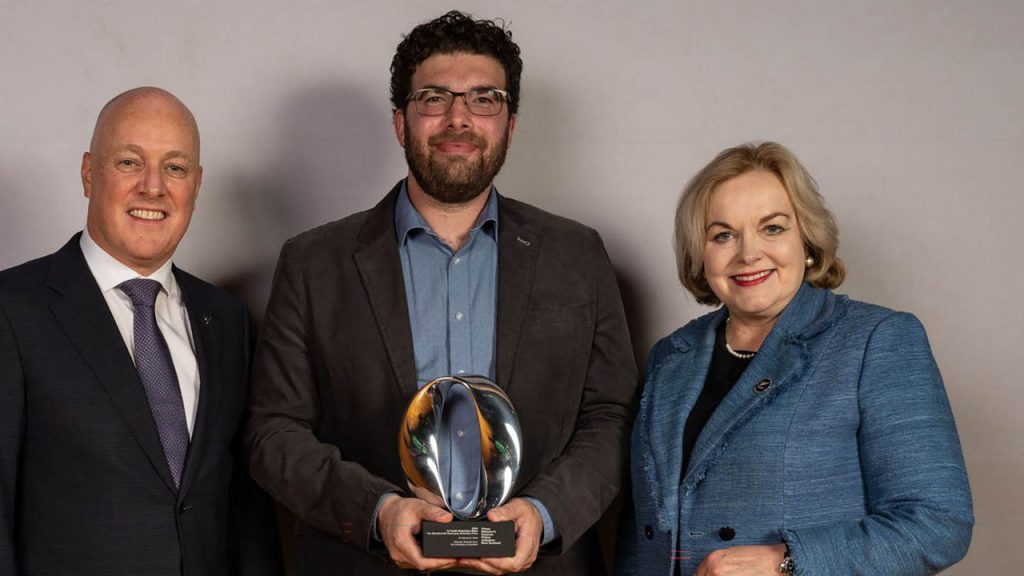Science
Cognitive Scientist Samuel Mehr Critiques New Zealand’s Science Funding

Cognitive scientist Samuel Mehr, the recipient of New Zealand’s top science award in 2022, has issued a stark warning about the country’s research landscape. He claims that unless there is a significant overhaul of the current funding system, New Zealand risks losing its brightest minds to international opportunities. Mehr described the existing science funding as “laughably pathetic” and underscored the urgent need for reform to retain talent.
Over the past decade, New Zealand has experienced a decline in its status as a hub for innovation. According to Mehr, recent budget cuts and structural changes within the scientific community have only exacerbated the situation. He stated that these decisions have added “insult to injury,” driving many top researchers to seek positions abroad, where funding and support for scientific endeavors are more robust.
Impact of Funding Cuts on Innovation
The challenges facing New Zealand’s science sector are not merely anecdotal. Research indicates that a lack of sustainable funding can hinder groundbreaking discoveries and slow the pace of innovation. In many instances, researchers require stable financial support to pursue long-term projects, which are essential for meaningful advancements in fields like cognitive science.
Mehr’s comments resonate with a broader sentiment among scientists in New Zealand. Many experts believe that if the government does not prioritize science funding, the country may struggle to attract and retain talent in the future. The situation is particularly concerning as nations worldwide are increasingly investing in research and development to drive economic growth and technological advancement.
A Call for Change
In light of these issues, Mehr is calling on government officials to acknowledge the critical role that science plays in society. He argues for an urgent shift in policy that would expand funding opportunities and create an environment conducive to research and discovery. By doing so, New Zealand could reclaim its status as a leader in innovation and ensure that its top scientists remain within the country.
The implications of failing to act are significant. As Mehr points out, the departure of skilled researchers not only affects individual fields but also stifles the potential for collaboration and interdisciplinary work that can lead to transformative breakthroughs.
In summary, the message from Samuel Mehr is clear: New Zealand must invest in its scientific community to prevent a brain drain and foster an environment where innovation can thrive. The future of the country’s research landscape depends on a commitment to enhancing funding and support for science, ensuring that New Zealand can continue to contribute to global advancements in knowledge and technology.
-

 Sports2 months ago
Sports2 months agoNetball New Zealand Stands Down Dame Noeline Taurua for Series
-

 Entertainment2 months ago
Entertainment2 months agoTributes Pour In for Lachlan Rofe, Reality Star, Dead at 47
-

 Entertainment3 weeks ago
Entertainment3 weeks agoNew ‘Maverick’ Chaser Joins Beat the Chasers Season Finale
-

 Sports2 months ago
Sports2 months agoSilver Ferns Legend Laura Langman Criticizes Team’s Attitude
-

 Politics4 weeks ago
Politics4 weeks agoNetball NZ Calls for Respect Amid Dame Taurua’s Standoff
-

 Entertainment2 months ago
Entertainment2 months agoKhloe Kardashian Embraces Innovative Stem Cell Therapy in Mexico
-

 World3 months ago
World3 months agoPolice Arrest Multiple Individuals During Funeral for Zain Taikato-Fox
-

 Sports2 months ago
Sports2 months agoGaël Monfils Set to Defend ASB Classic Title in January 2026
-

 Entertainment1 month ago
Entertainment1 month agoTyson Fury’s Daughter Venezuela Gets Engaged at Birthday Bash
-

 Sports1 month ago
Sports1 month agoHeather McMahan Steps Down as Ryder Cup Host After Controversy
-

 World1 week ago
World1 week agoSevere Winds Hit New Zealand, Over 100 Flights Canceled
-

 Entertainment1 month ago
Entertainment1 month agoTyson Fury’s Daughter Venezuela Gets Engaged at Birthday Bash


















